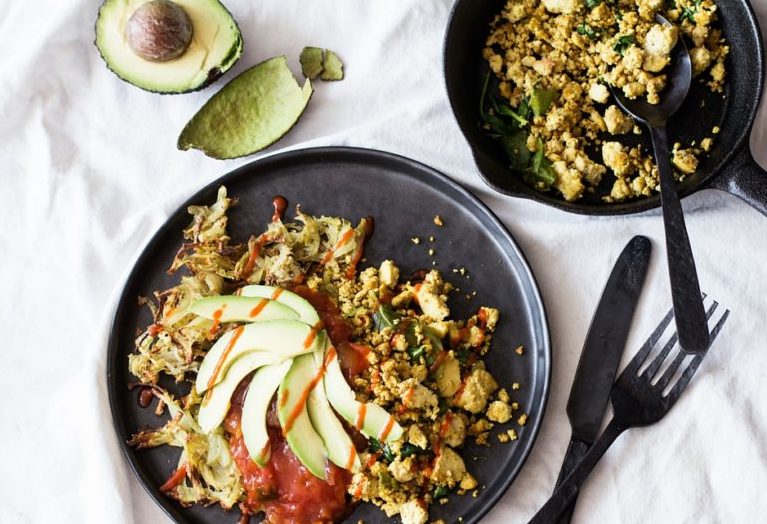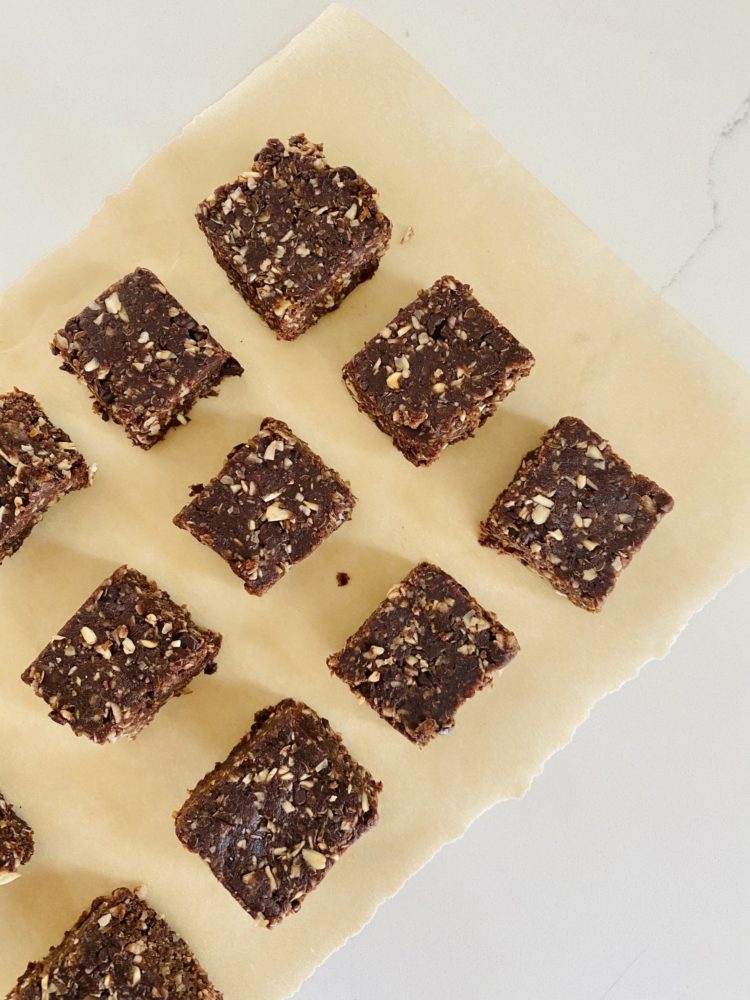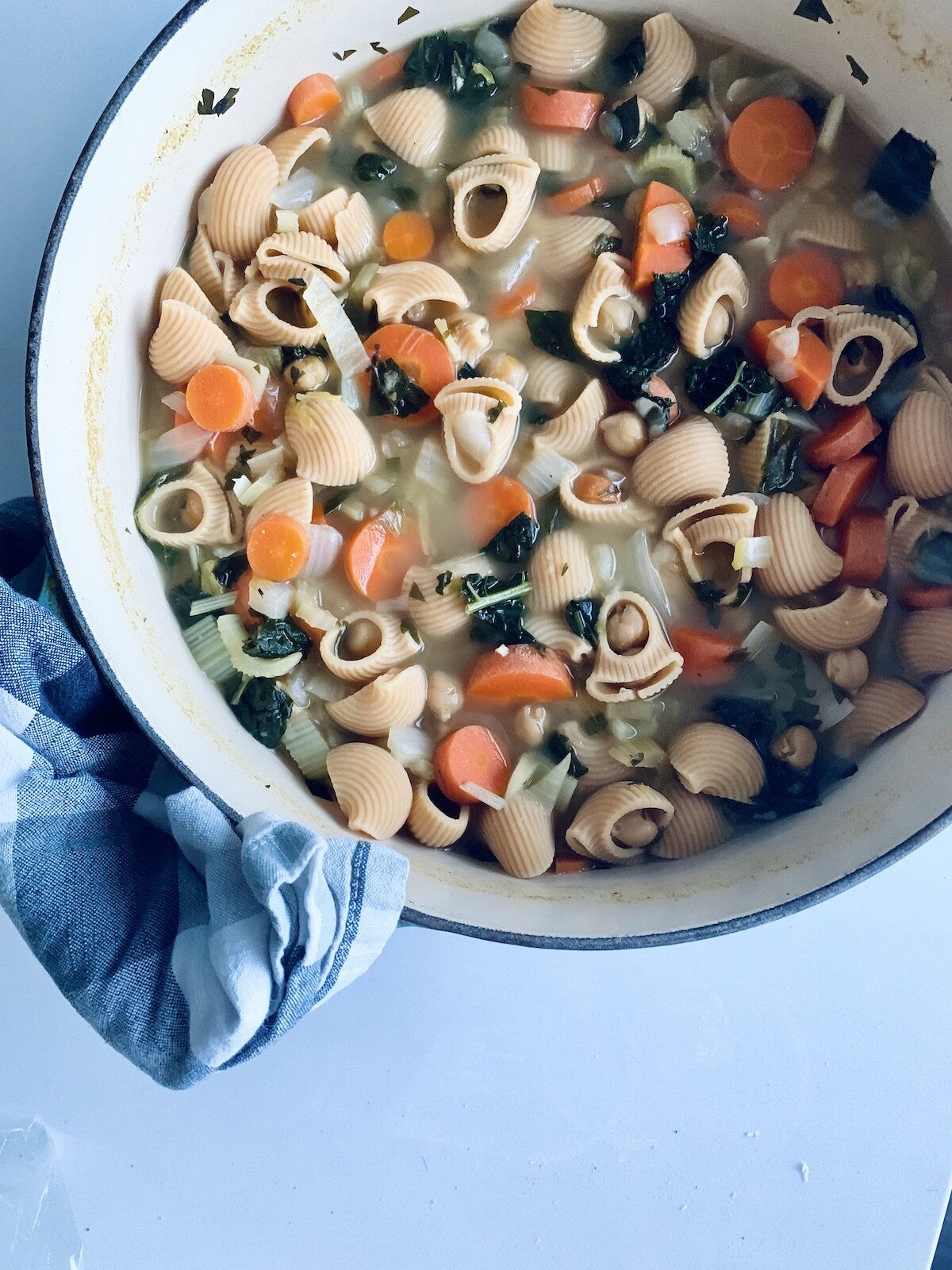Whether you’re 100% plant-based or simply plant-curious, you’ve probably wondered whether plant-based proteins are truly sufficient in meeting your needs. Some people swear you need a gram of protein for every pound you weigh, while others firmly believe that you’ll get what you need from broccoli and kale. Today we’re clearing up the mud around protein for vegans. We’re covering all the myths, how much you need, the best sources, and simple strategies to make sure you’re getting enough. Let’s dive in.
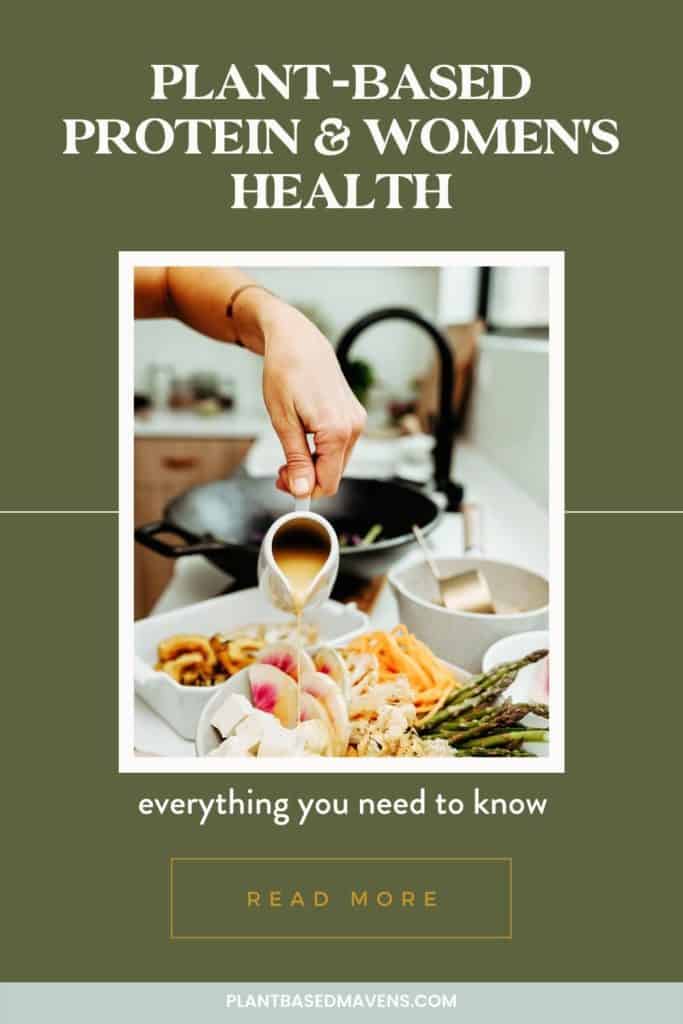
What is protein?
Protein is a vital macronutrient that plays a crucial role in our bodies, serving as one of the key building blocks of life. Comprised of long chains of amino acids, protein is essential for numerous bodily functions, including the growth and repair of tissues, the production of enzymes and hormones, and the transportation of molecules throughout the body.
Proteins are made up of 20 different amino acids, of which 9 are deemed essential. This means that our bodies cannot synthesize them, and we must obtain them through our diet. The remaining amino acids can be produced by our bodies, but they still play crucial roles in maintaining health and supporting metabolic processes. Maybe you’ve heard that plant-based proteins are “incomplete” or don’t contain all essential amino acids. This is false! All essential amino acids can be found in plant-based foods.
Why is Protein Important?
Protein is an essential nutrient that provides us with energy and helps build and repair cells and muscle tissue. Getting enough protein helps support your immune system, helps you maintain your lean muscle mass, and supports strong bones. Meeting protein needs is important for all women, but it becomes especially critical during pregnancy when protein is used for fetal development and later in life when women are prone to muscle and bone loss.
You have probably heard plant-based experts tell you not to worry about protein. While the pop culture obsession with protein is unwarranted, it is still a very important part of health. Maybe you’ve also heard claims like “one-hundred calories of broccoli has more protein than one-hundred calories of beef!” It is true that many plant foods (even broccoli!) contain protein. These foods contribute to our daily protein intake, but claims like this are misleading and put plant-based eaters at risk for eating too little protein. After all, one-hundred calories of broccoli equals four cups of raw florets… that is a lot of broccoli!
While these claims may be well-meaning, they are harmful to women’s health. I’ve got some simple strategies for you to help meet your protein needs, so keep reading!
Animal Protein vs. Plant Protein
Not all protein is equal when it comes to health. Because we don’t eat nutrients in isolation, it’s important to look at the entire food package that a nutrient like protein comes in.
Plant proteins come packaged with health-supporting fiber, water, and antioxidants. Animal proteins, on the other hand, are packaged with unhealthy saturated fat and cholesterol and are void of fiber and antioxidants. Another metric worth considering is the protein sources impact on the environment. We know that animal agriculture is one of the leading causes of climate change! This alone is enough to switch to more vegan protein sources.
Replacing protein-rich animal foods with protein-rich plant foods has unique benefits for women. Making this swap can cut infertility risk in half. It can also lower your risk of heart disease, diabetes, dementia, breast cancer, and other cancers.
Do vegans get enough protein?
Because protein is so strongly associated with meat and other animal products, many plant-based women worry about getting enough. The good news? A well-planned vegan diet can provide all the protein you need for optimal health.
Research consistently demonstrates that vegans and vegetarians can meet their protein needs through a well-planned diet. Numerous studies have debunked the myth that plant foods lack sufficient protein, highlighting that sources such as legumes, beans, nuts, seeds, and whole grains are rich in protein and contribute to optimal nutrition. Even professional athletes have shown that they can thrive on plant-based diets without the need for protein powders. Studies show that vegans and vegetarians easily meet protein needs, on average.
The evidence is reassuring, but that doesn’t mean we can forget about protein needs. I often see plant-based women falling short on protein intake because a celebrity doctor told them they don’t need to worry about it. Because protein is so important to women’s health, especially during pregnancy and as we age, it’s really important to understand the basics of getting enough.
How to get enough protein for vegans
Here’s a bulleted list of strategies for vegan women to meet their protein needs:
Incorporate Protein-Rich Foods at Every Meal:
Try to include a serving of a protein-rich food at most meals.
- Include legumes such as lentils, chickpeas, black beans, and kidney beans in salads, soups, and stews.
- Add tofu and tempeh to stir-fries, sandwiches, or grain bowls for a protein boost.
- Use quinoa as a base for salads or bowls.
Snack on High-Protein Options:
Most people don’t think about protein-rich foods at snack time, but this is great way to boost your intake!
- Choose nuts and seeds (e.g., almonds, sunflower seeds, pumpkin seeds) and their respective butters as part of your snacks.
- Try edamame or roasted chickpeas as protein-rich snacks.
Emphasize Whole Grains:
- Opt for whole grains like farro, barley, or whole wheat pasta, which contain more protein compared to refined grains.
Eat enough!
Cutting calories also means cutting nutrients. When you don’t eat enough food, you run the risk of not eating enough nutrients, including protein.
Choose soymilk
While there’s nothing wrong with drinking other plant-based milks, soymilk gives you the biggest bang for your buck when it comes to nutrition. This can be a super easy swap to make! Bonus points if your soymilk is also fortified with calcium and vitamin D.
When enjoying low-protein meat substitutes, be sure to also include a protein-rich food
Some meat substitutes like frozen veggie burgers and jackfruit are low in protein. It’s totally fine to enjoy these foods, but try to also include a protein-rich food in your meal too.
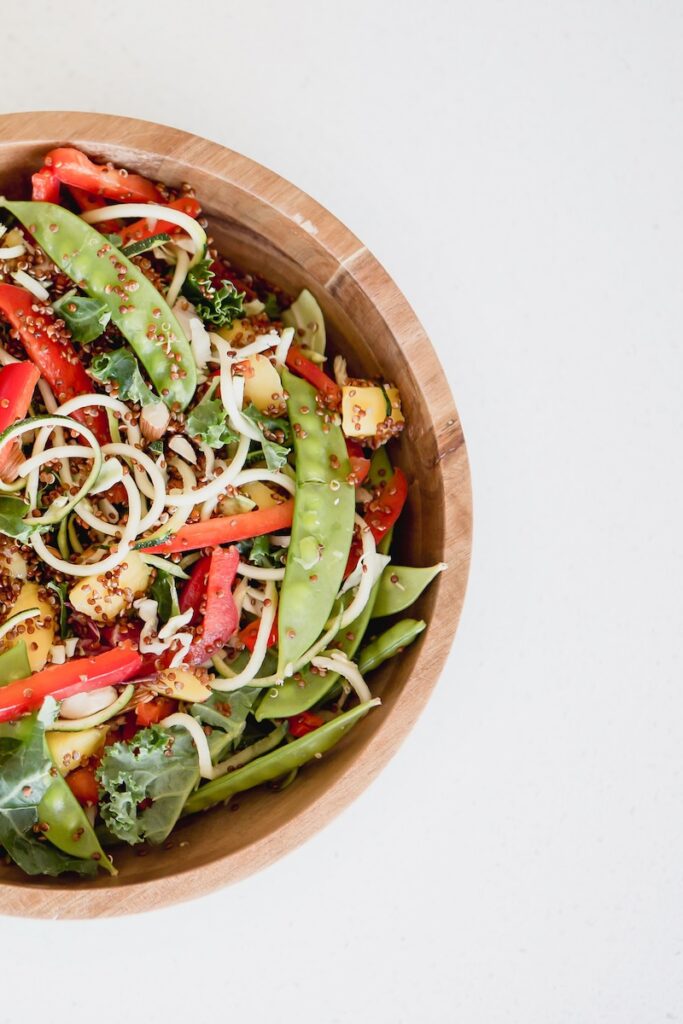
What are the best sources of protein for vegans?
Plenty of plant-based foods can help you meet your protein intake. As I mentioned, it is true that most foods contain some amount of protein. But your best bet is to focus on the most protein-rich foods to help you meet your needs. Here’s a breakdown of some of the best vegan protein sources:
1. Legumes
Legumes are an excellent source of protein, fiber, and essential nutrients. They are versatile and can be used in various dishes. Some of the top legumes include:
- Lentils: Approximately 18 g of protein per cooked cup (240 ml).
- Chickpeas: About 15 g of protein per cooked cup (240 ml).
- Black Beans: Roughly 15 g of protein per cooked cup (240 ml).
- Kidney Beans: Approximately 13 g of protein per cooked cup (240 ml).
- Peas: About 9 g of protein per cooked cup (240 ml).
2. Tofu and Tempeh
Both tofu and tempeh are made from soybeans and are rich in protein. They are incredibly versatile and can be incorporated into various meals:
- Tofu: Contains around 20 g of protein per 3.5 oz (100 g) serving. It can be used in stir-fries, salads, and smoothies.
- Tempeh: Offers approximately 19 g of protein per 3.5 oz (100 g) serving. Tempeh has a firmer texture and nutty flavor, making it great for grilling or adding to sandwiches.
If you’re concerned about soy, read this post!
3. Quinoa
Quinoa is a protein rich grain and contains all nine essential amino acids that the body cannot produce on its own, including lysine (more on that below!). It provides about 8 g of protein per cooked cup (240 ml) and can be used as a base for salads, bowls, or as a side dish.
4. Seitan
Often referred to as “wheat meat,” seitan is a high-protein meat substitute made from gluten. It contains about 25 g of protein per 3.5 oz (100 g) serving and is favored for its chewy texture, making it ideal for stir-fries, sandwiches, or as a meat alternative in various dishes.
5. Nuts and Seeds
Nuts and seeds not only add protein to your diet but also provide healthy fats. Some notable options include:
- Chia Seeds: Approximately 5 g of protein per 2 tablespoons (28 g).
- Hemp Seeds: About 10 g of protein per 3 tablespoons (30 g).
- Almonds: Roughly 6 g of protein per ounce (28 g).
- Peanuts: Around 7 g of protein per ounce (28 g).
6. Nutritional Yeast
Nutritional yeast is a deactivated yeast that is often fortified with vitamin B12. It has a cheesy flavor and provides about 8 g of protein per two tablespoons (16 g). It can be sprinkled on popcorn, mixed into sauces, or used in vegan cheese recipes.
With a wide variety of high-protein vegan foods available, it’s entirely possible to meet your protein needs while following a plant-based diet. Incorporating a mix of legumes, soy products, whole grains, nuts, seeds, and nutritional yeast can help you achieve a balanced and nutritious diet without the need for animal products. By planning meals thoughtfully and diversifying your protein sources, you can ensure that you are getting all the essential nutrients your body requires.
The Importance of Lysine
Proteins are built from chains of smaller components called amino acids. There are twenty different amino acids. The body makes some amino acids, and your diet provides the others. Essential amino acids are not made by the body and are an essential part of the diet. Plant foods contain all essential amino acids, however one essential amino acid that plant-based eaters should pay special attention to is lysine. Certain plant foods contain an abundance of Lysine, but is low in others (fruits, vegetables, grains).
Lysine-rich plant protein sources:
- Beans (black, garbanzo, pinto, kidney, navy)
- Lentils
- Dried peas
- Edamame
- Tofu
- Tempeh
- Soymilk
- Peanuts and peanut butter
- Almonds and almond butter
- Cashews and cashew butter
- Pistachios
- Brazil nuts
- Walnuts
- Sunflower seeds
- Sesame seeds
- Tahini
- Quinoa
How much protein do vegan women need?
Plant foods contain enough protein to meet women’s protein needs. Protein needs are calculated based on body weight. The general protein recommendation is 0.36 grams of protein per pound of bodyweight each day. Because plant-based proteins are digested differently than animal-based proteins, it may be wise for plant-based eaters aim a little higher – about 0.45 grams of protein per pound for women between the ages of 19-60 who are not pregnant or breastfeeding. Women’s protein needs increase during special stages of life as shown in the table below.
Vegan Women’s Protein Needs

recommended dietary allowances
Takeaways: Tips For Meeting Protein Needs on a Plant-based Diet
- Make sure you’re eating enough calories from a variety of plant-based foods
- Eat 3-4 servings of lysine-rich foods each day. For example, one cup of soymilk at breakfast, hummus at lunch, and tofu with quinoa at dinner will meet needs
- Choose soymilk over other plant-based milks more often because it is an excellent source of protein. Other plant-based milks are certainly okay to drink, but they have fewer nutrition benefits.
- Beware of low-protein meat alternatives like jackfruit and frozen veggie burgers. Pair them with a protein-rich food!
Common Questions About Protein and Plant-based Diets
Is more protein better?
Eating more protein than you need will not make you leaner, stronger, or healthier. Any excess protein that you eat is either stored as fat in the body or excreted as waste. Eating excessive amounts of animal protein in particular is linked to higher rates of heart disease, diabetes, and cancer.
Do you need to combine foods to get “complete” proteins?
No. This is a common myth related to protein for vegans. It is rooted in the idea that foods with varying contents of amino acids needed to be eaten in the same meal in order to build complete strands of protein. Luckily, our bodies are very smart and can store amino acids from meal to meal so they can build complete proteins. As long as you are eating a variety of foods throughout the week and emphasizing lysine-rich foods, your body can build all the complete proteins it needs.
Do you need vegan protein powders?
Unless you have special nutrition needs determined by a registered dietitian with expertise in plant-based nutrition, protein powders are likely an unnecessary addition to your eating plan – not to mention an unnecessary expense! Because most protein powders are highly processed, I like to use whole foods to boost protein when needed. Adding beans or tofu to smoothies or adding soymilk to soups and sauces are just a few ideas!
